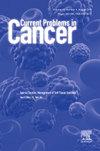Dosing immune-checkpoint inhibitors: Opportunities for the future
IF 2.3
4区 医学
Q3 ONCOLOGY
引用次数: 0
Abstract
With recent breakthroughs in immunotherapy, particularly with the approval of immune checkpoint inhibitors for various cancer indications, patients now have a wider array of treatment options, even for those with metastatic disease. Still, the survival benefit of immune-checkpoint inhibitors is modest, and there is concern about drug toxicity. In addition, there is ongoing exploration into combination therapy involving immune-checkpoint inhibitors, which come at the risk of increased toxicity. Unfortunately, due to the cost of the currently approved doses and dosing intervals, many patients in the community in the United States and low- and middle-income countries lack access to these transformative therapies. Further, the observation of resistance to immune-checkpoint inhibitors and limitations of currently approved doses and dosing intervals warrants changes in current practice. This review paper discusses both model-based and clinical studies in the current literature. Strategies for improving access to immune-checkpoint inhibitors and expanding their utilization, including weight-based dosing instead of fixed dosing, dose and dose interval adjustments, development of biomarkers and scoring systems for personalization of immune-checkpoint inhibitors, and alternative trial design, are discussed.
给药免疫检查点抑制剂:未来的机遇
随着最近免疫疗法的突破,特别是免疫检查点抑制剂被批准用于各种癌症适应症,患者现在有更广泛的治疗选择,即使是那些转移性疾病。尽管如此,免疫检查点抑制剂的生存益处是适度的,并且存在对药物毒性的担忧。此外,目前正在探索涉及免疫检查点抑制剂的联合治疗,这有增加毒性的风险。不幸的是,由于目前批准的剂量和给药间隔的成本,美国和中低收入国家社区的许多患者无法获得这些变革性疗法。此外,观察到免疫检查点抑制剂的耐药性以及目前批准的剂量和给药间隔的局限性,需要改变当前的做法。本文综述了目前文献中基于模型和临床的研究。本文讨论了改善免疫检查点抑制剂获取途径和扩大其使用的策略,包括以体重为基础给药而不是固定给药、剂量和剂量间隔调整、开发生物标志物和免疫检查点抑制剂个性化评分系统以及替代试验设计。
本文章由计算机程序翻译,如有差异,请以英文原文为准。
求助全文
约1分钟内获得全文
求助全文
来源期刊

Current Problems in Cancer
医学-肿瘤学
CiteScore
5.10
自引率
0.00%
发文量
71
审稿时长
15 days
期刊介绍:
Current Problems in Cancer seeks to promote and disseminate innovative, transformative, and impactful data on patient-oriented cancer research and clinical care. Specifically, the journal''s scope is focused on reporting the results of well-designed cancer studies that influence/alter practice or identify new directions in clinical cancer research. These studies can include novel therapeutic approaches, new strategies for early diagnosis, cancer clinical trials, and supportive care, among others. Papers that focus solely on laboratory-based or basic science research are discouraged. The journal''s format also allows, on occasion, for a multi-faceted overview of a single topic via a curated selection of review articles, while also offering articles that present dynamic material that influences the oncology field.
 求助内容:
求助内容: 应助结果提醒方式:
应助结果提醒方式:


